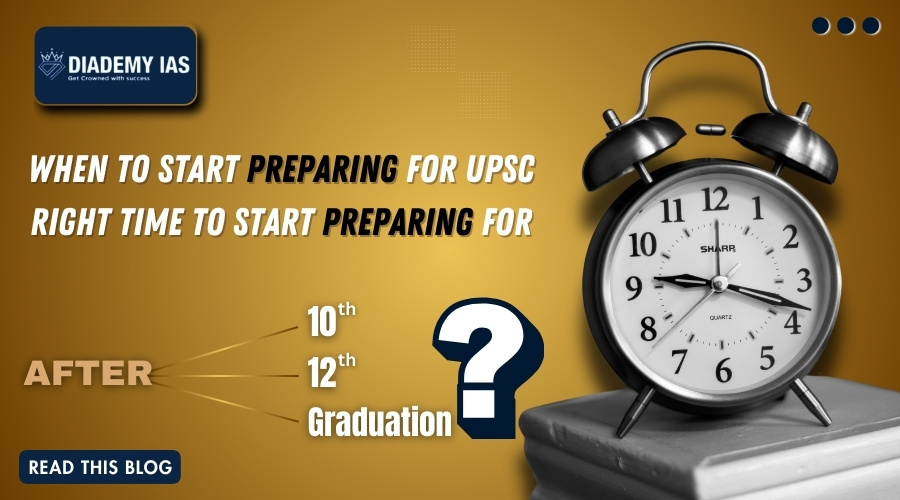Starting your IAS Journey: The Best Age to Begin Preparation
Unveiling the optimal age to kickstart your IAS exam preparation - are you ready to embark on this transformative journey?

Table of Contents
For many aspiring civil servants, the journey towards becoming an IAS officer is a challenging yet rewarding path filled with opportunities for personal and professional growth. One of the key questions that often arises is when the best age to start preparing for this prestigious exam is. Should one begin in school, during college, or after completing their education? Each stage of academic life presents unique advantages and challenges that can significantly impact an aspirant’s preparation strategy.
Starting in school can provide ample time to build a strong foundation in critical subjects and develop effective study habits. However, this approach may also lead to burnout or distract students from their regular academic responsibilities. On the other hand, beginning preparation during college allows students to tap into a wealth of resources and support while navigating a more flexible schedule. Yet, balancing college academics and IAS preparation can prove to be a daunting task. Many candidates opt to start their preparation after completing their degree, allowing for a concentrated focus on the exam. While this can streamline the study process, it may also create time constraints due to other commitments.
In this blog post, we will explore these different stages in detail, providing a comparative analysis to help you make an informed decision about when to embark on your IAS preparation journey.
Starting IAS Preparation in School
Beginning your IAS preparation during your school years can have several benefits. At a young age, you have high energy levels and a keen desire to learn. This provides you with ample time to build a strong foundation in subjects like history, geography, and political science, which are crucial for the IAS exam. Moreover, starting early allows you to develop good study habits and time management skills that will benefit you in the long run.
Start Your IAS Preparation
Connect with Diademy for expert tips and guidance
However, there are also some drawbacks to starting your IAS preparation in school. Young aspirants may lack the maturity and life experience needed to understand complex social issues and governance. Additionally, limited exposure to current affairs and real-world problems may hinder your overall preparation for the exam.
Starting IAS Preparation in College
Embarking on your IAS journey during college years can offer a unique set of advantages. College students have already developed study habits and academic skills that can be applied to their IAS preparation. Exposure to diverse subjects and interdisciplinary learning can broaden your knowledge base and help you understand complex societal issues from different perspectives.
On the flip side, balancing college studies with IAS preparation can be a challenging task. The demands of academic coursework, extracurricular activities, and social life can leave little time for dedicated preparation. Furthermore, guidance from college professors on IAS exam-specific topics may be limited, requiring additional self-study and research.
Starting IAS Preparation After College
Opting to start your IAS preparation after completing your education can offer its own set of advantages. At this stage, individuals have gained valuable life experience and maturity, which can be beneficial in understanding complex societal issues and governance. With more freedom and flexibility in terms of schedule, post-college aspirants can focus solely on their IAS preparation without the distraction of academic coursework.
However, starting IAS preparation after college also comes with some challenges. Limited time for preparation due to other commitments such as job responsibilities or family obligations can be a hindrance. Self-discipline and motivation become crucial factors in maintaining consistency and dedication towards your IAS preparation.
Comparative Analysis
When comparing the different stages of starting IAS preparation, several key factors come into play:
Academic Background
Starting in school provides a strong foundation in basic subjects, while college exposes you to diverse subjects. Starting after college offers maturity and life experience that can aid in understanding complex issues.
Time Management
School offers more time for preparation, while college requires balancing academic studies. Starting after college provides flexibility in terms of schedule.
Study Habits
Starting in school helps in developing study habits at a young age, while college builds on established study habits. Starting after college necessitates self-discipline and motivation.
Exposure to Current Affairs
School may provide limited exposure to current affairs, while college offers a better understanding of current issues. Starting after college requires prioritizing staying up-to-date with current affairs for the exam.
Prepare for IAS Success
Contact Diademy for expert tips and guidance on starting your journey!
Conclusion
Ultimately, the best age to start your IAS preparation depends on your individual strengths, weaknesses, and circumstances. While starting early in school can provide a strong foundation, beginning in college or after college offers its own set of advantages. No matter when you decide to start your IAS journey, consistency, dedication, and hard work are key to achieving success in the exam. Remember, it's never too early or too late to pursue your dreams of becoming an IAS officer.
FAQs on When to Start Preparing for IAS exam
1. What is the ideal age to start preparing for the IAS exam?
UPSC toppers come from various age groups, making it clear that success cannot be tied to a specific age. However, the age range of 18-23 is often considered ideal for UPSC preparation. At this stage, candidates typically have a higher retention capacity, along with greater energy and enthusiasm. Starting early allows them to channel their efforts effectively and develop their personalities in alignment with their goals.
Additionally, beginning preparation at a young age provides more opportunities. Candidates who qualify on their fourth or fifth attempt can still become IAS officers by the age of 26 or 27. Moreover, if they encounter setbacks, they have the option to explore different career paths and establish themselves in other fields. This flexibility can be a significant advantage for early starters.
2. Can I start IAS preparation after completing my graduation?
Absolutely! Many successful IAS candidates begin their preparation after finishing their degree. This approach allows for a focused study period, although it may require more intensive preparation to cover the syllabus in a limited timeframe.
3. What are the benefits of starting IAS preparation in school?
Starting early can help build a solid foundation in important subjects, develop effective study habits, and reduce the pressure of last-minute preparation. It also allows for gradual learning and the chance to explore different subjects over time.
4. Are there disadvantages to starting IAS preparation in college?
While college provides resources and a supportive environment, balancing academic responsibilities with IAS preparation can be challenging. It may lead to stress if not managed well, especially during exams or project deadlines.
5. How can I effectively manage my time if I start preparing for the IAS exam after graduation?
Effective time management is crucial. Create a structured study plan that breaks down the syllabus into manageable sections, set specific goals, and stick to a consistent study schedule. Utilizing online resources and joining study groups can also enhance your preparation.



